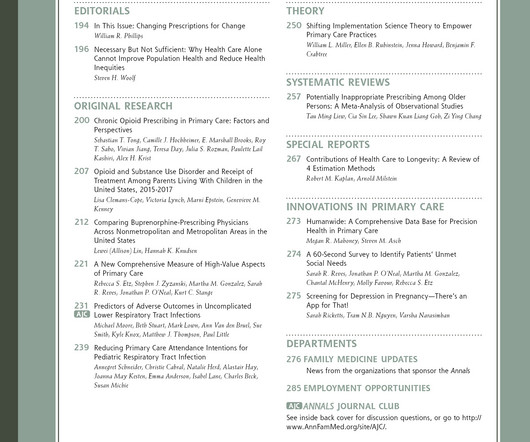Hepatitis C Micro-elimination Using Patient Navigation In a Regional Healthcare System [Infectious diseases (not respiratory tract)]
Annals of Family Medicine
NOVEMBER 20, 2024
Population Studied: Individuals identified through electronic medical record (EMR) periodic surveillance with either diagnosed with HCV and either not engaged in treatment or not completed treatment, as well as those needing additional testing (SVR or high-risk re-testing). were on Medicaid insurance when diagnosed.












Let's personalize your content